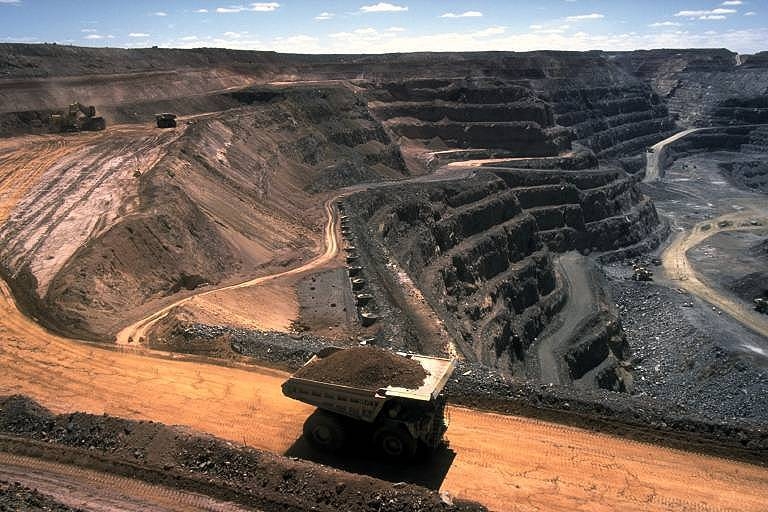RIO DE JANEIRO, BRAZIL – Although Covid-19 is still a long way from being eradicated worldwide, countries’ economies in general have been rebounding reasonably quickly from the sharp decline triggered by the pandemic.

China, a kind of engine of the world, is the greatest example of this. One of the main impacts of this is the increase in demand – and, consequently, in prices – for raw materials.
From April last year (the peak of the pandemic) to date, the dollar quotes of the 19 main agricultural, steel and energy commodities had increased by an average of 40%, according to the Commodity Research Bureau (CRB) index, an indicator that is a standard reference for raw materials.
This development is of direct interest to Brazil, one of the largest world suppliers of key products in this context – such as soy, corn, meat and iron ore.
Among analysts, it is unclear whether or not the world is heading toward a new commodities “supercycle” along the lines of the one that started in the first decade of the 2000s – current prices are still 16% below the peak recorded by the CRB in 2011.
What is clear is that this price hike offers good prospects for Brazil.
Last year, soybean exports were up 9.6% and iron ore exports increased 20.3%, compared to 2019, according to the Ministry of Economy. The rise in iron ore (which exceeds 70% compared to the start of last year) had an impact on Vale’s shares, for instance, which more than doubled in value compared to the start of the pandemic. The rise helped CSN to raise R$5.2 billion by going public with its mining division, a move that had been in preparation for many years.
A recent report published by Estadão newspaper had already pointed out that, while industry, retail and services felt the blow caused by the impact of covid-19, the countryside was celebrating an almost 40% increase in income from the sale of grains, the result of a record harvest of over 250 million tons in Brazil.
The recovery of oil prices, which collapsed at the start of the pandemic, had consequences – in this case, both positive and negative – for Petrobras.
The company closed the fourth quarter with a R$59.9 billion profit, reversing losses recorded in the first three quarters. But it was also precisely the rise in prices that ultimately led to the removal of the company’s CEO, Roberto Castello Branco, after President Bolsonaro said he was annoyed with the rise in fuel prices, as Petrobras’ policy ties these products to international oil prices.
The last commodities boom years brought a period of prosperity to Brazil. These were years of strong GDP growth – between 2004 and 2008, the country grew 5.8%, 3.2%, 4%, 6.1%, and 5.1%, respectively.
However, this good phase camouflaged structural issues, economists point out, and major economic reforms were neglected. When the time of plenty was over, Brazil sank into a deep recession, from which it has not been able to bounce back to this day.
According to analysts, be this a supercycle or not, it is important not to lose sight of the fact that the country’s structural issues need to be urgently addressed.
“This (a potential supercycle) would not be able to solve the fiscal issue, nor significantly accelerate the country’s growth potential. This is still held back by the very poor business environment, which will not be solved by a new commodities boom,” says the coordinator of Applied Economics at the Brazilian Institute of Economics, Getúlio Vargas Foundation (Ibre/FGV), Armando Castelar.
“The sense of urgency might soften somewhat, but the problem would not be solved and the potential for sustained growth would not increase significantly.”
Roberto Attuch, CEO of OhmResearch, an independent analysis platform, also does not see this rising commodity price scenario as an argument to defer reforms.
“Today we are in a very different situation than we were in Lula’s government,” he says. In 2005, the ratio between debt and Gross Domestic Product (GDP) was much lower than it is today and the fiscal situation was not as delicate as it currently is.
In other words, pushing reforms aside could be even more harmful this time around.
Source: O Estadão

